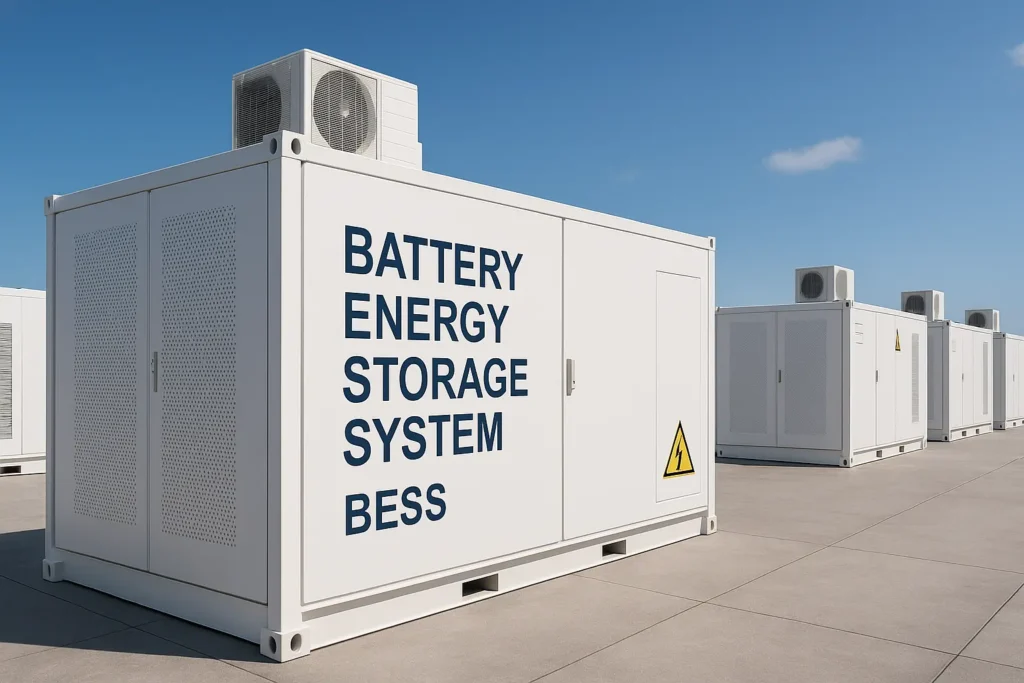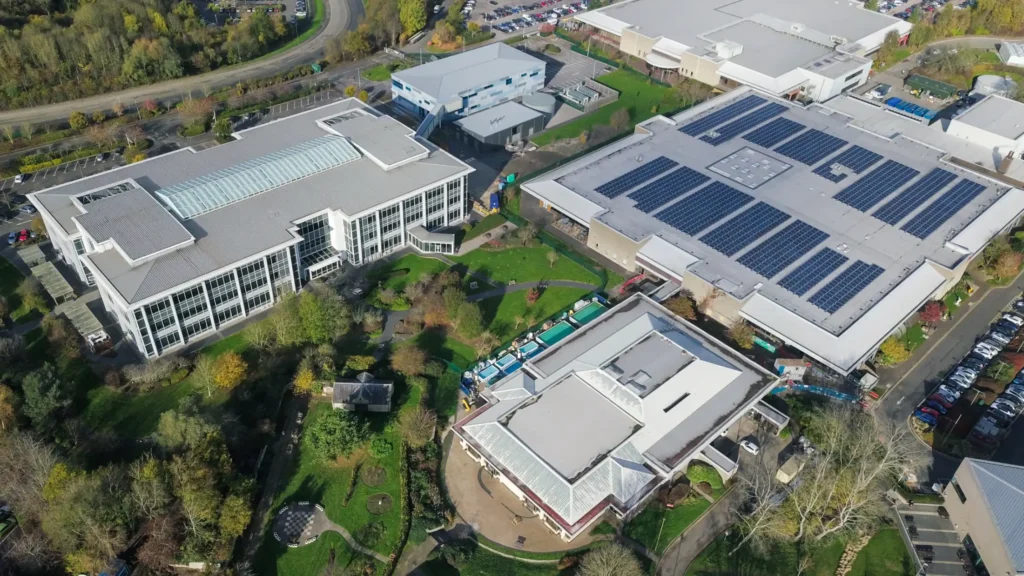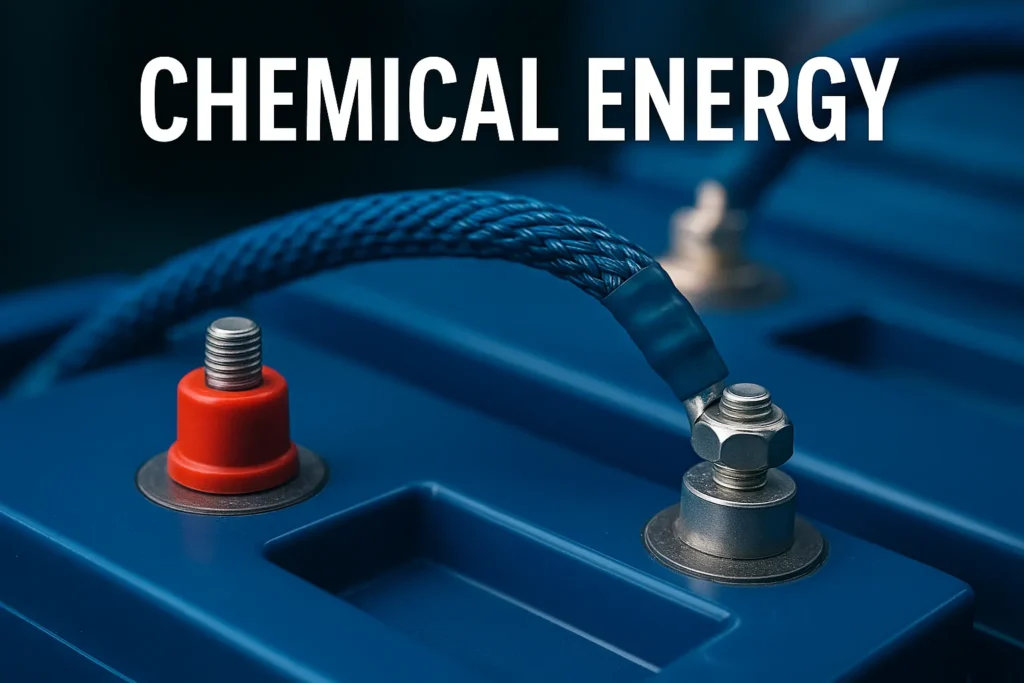BESS is an abbreviation for Battery Energy Storage System. It is an energy storage system that stores energy in a rechargeable battery and releases it when needed.
These devices are used to store extra electricity, usually from renewable resources like the sun or wind, and release it when demand is high or output is low.

In simple words, a BESS can be defined as a massive rechargeable battery of the power grid or of a single building. It balances supply and demand, provides reliable power, and improves the efficiency of energy systems.
Why is BESS Important?
As the demand for renewable energy grows, so does the challenge that they do not supply electricity all the time. During nighttime, the wind can slow down, and sunlight is not available to generate power.
That is where BESS comes in—it stores electricity when there is high production and delivers it when there is low production. It minimizes the use of fossil fuels and makes a cleaner and more stable grid.
Where Are Battery Energy Storage Systems Used?
BESS is applied in many areas of application these days, including:
- Utility-Scale Projects: To provide backup to electricity grids during outages or peak hours.
- Commercial Industries and Buildings: To reduce electricity bills through storing energy when it is cheap and using it during expensive peak times.
- Renewable Energy Projects: Wind farms and solar farms also make use of BESS to store energy they produce in excess.
- Homes: Residents have small battery storage systems (like the Tesla Powerwall) installed on their rooftops with solar panels to store daytime energy for nighttime usage.
What are the common battery types in BESS?
BESS can use different forms of batteries, such as:
- Lithium-ion (most utilized due to its efficiency and high energy density)
- Lead-acid (less efficient and older but cheaper)
- Flow batteries (appropriate for long-duration storage)
References
The information in this article is based on insights from respected organizations in the energy field. We have reviewed content from the following sources to ensure accuracy and relevance:

Posted by Abu Talha
With a background in science at the A-level, Abu Talha has studied subjects including physics, chemistry, mathematics, and biology. Along with his more than 1.5 years of experience in digital marketing, he is passionate about writing about electric vehicles, sustainable energy, and how emerging technologies are influencing the future.


